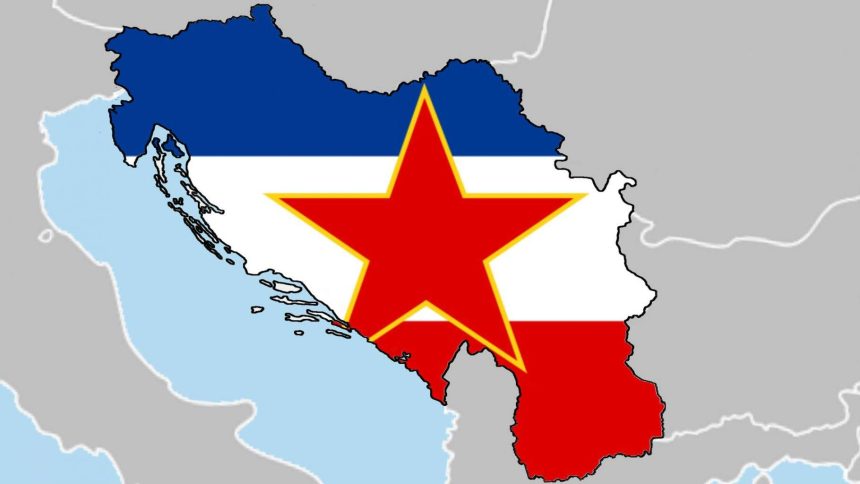The conflict between Yugoslavia’s leader Tito and the Soviet Union leader Stalin caused divisions in Europe. With several attempts on the life of Tito, Stalin couldn’t succeed in his vicious act. This caused a lot of controversies about Stalin’s Death. Enjoy this read!
Tito Stalin assassination quote
Joseph Stalin planned assassination attempts on Josip Broz Tito, the Prime Minister of Yugoslavia in 1949. Tito responded in a letter saying “Stop sending people to kill me. We’ve already captured five of them, one of them with a bomb and another with a rifle. If you don’t stop sending killers, I’ll send one to Moscow and I won’t have to send a second”.
Tito Stalin Split
This was the climax of a conflict between the political leaderships of Yugoslavia and the Soviet Union which was under Josip Broz and Joseph Stalin in the years following World War II.
The Soviet Union’s (USSR) alliances leader Joseph Stalin’s ambition to expand the Soviet sphere of influence beyond the USSR’s borders and conflict between the Josip Broz Tito led Communist Party of Yugoslavia (KPJ) and the Yugoslav government in exile led by King Peter II of Yugoslavia complicated Tito and Stalin’s relationship during World War II.
The Kingdom of Yugoslavia was invaded by the Axis powers in 1941 and the country surrendered 11days later. The government fled abroad and relocated to London. Nazi Germany, Fascist Italy, Bulgaria, and Hungary took parts of the country. The rest of the territory was broken up: most of it was organized as the Independent State of Croatia while the capital Belgrade continued to exist in the German-occupied territory of Serbia.
In 1948 a split ensued because Yugoslavia’s leader Josip Broz Tito disagreed with Joseph Stalin on several critical issues. Germany was subdivided by the Allied forces with the west part of the country under British, American, French control. The eastern part was under Soviet rule.
Why Did Tito poison Stalin?
On March 5, 1953, when the Russian leader Joseph Stalin died, a letter was found in his office that was written by Josip Broz Tito the Yugoslavian leader. The two became enemies after Tito used World War II as an opportunity to start a revolution and led Yugoslavia to independence from the Soviet influence. No less than 22 assassination attempts were made against Tito in the years after the war. A Slovenian historian said Stalin was poisoned instead of suffering a fatal stroke. He suspected Tito of having a hand in this act. A historian called Joze Pirjavec in his book suggested that Tito knew Stalin would not end this assassination attempt until succeeded.
It was not proven that Mr. Pirjavec’s suspicion was entirely the cause of death of Stalin. The death of Stalin could have been his own doing because of the several attempts he made against Tito. He ruled ruthlessly and executed anyone who said contrary to what he ordered. His team was terrified with fear. On the day he suffered the stroke, he gave instructions not to be disturbed by anyone. After a long meeting which ended at 4 am, Stalin went to bed and told his guards to go off duty. Morning came and there was no word from their leader but they didn’t want to enter his room because they were obeying orders. When it was 6:30 pm, there was no word from Stalin, the guards were worried so at 10 pm they decided to just enter his room. As they enter they saw Stalin lying on the floor, unable to speak or move.
Before medical help arrived, Stalin was paralyzed and vomiting blood. He survived for several days but eventually was choked to death on his bed on the night of March 5.
Doctors said he suffered from a cerebral hemorrhage and could have brought about the stroke. Mr. Pirjavec insinuated that Stalin was poisoned by potassium cyanide and thought his successor Nikita Khrushchev might have assisted Tito in committing such an act.
Why was Yugoslavia expelled from Cominform?
Cominform was initially located in Belgrade in Yugoslavia. In June 1948 after Tito Stalin split expelled Yugoslavia from the group, the seat was moved to Bucharest in Romania. Yugoslavia was expelled because of Titoism and anti-Sovietism based on accusations of deviating from Marxism-Leninism.
For rejecting Soviet rule in its affairs and incorporation into the Eastern Bloc as a Soviet satellite state, Yugoslavia was labeled heretical. Because of Yugoslavia’s commitment to assisting communist insurgents in the Greek Civil war, this act violated the Percentages Agreement between the Soviet Union and the United Kingdom and its decision to station soldiers in Albania and these were their main causes for the expulsion. The Informbio period in Yugoslavia’s history began with the expulsion of the Communist Party of Yugoslavia from Cominform. The Cominform paper was first published in Belgrade but that was after Yugoslavia was expelled. It was relocated to Bucharest.
Was Yugoslavia part of the Eastern Bloc
Yugoslavia which is a communist country did not immediately join the Eastern Bloc. It was open to relations with NATO. Most of the countries entered the Eastern Bloc with ease but it was challenging for East Germany and Yugoslavia. The countries of the Eastern Bloc were spread across eastern and central Europe. These countries are Poland, The Soviet Union, Albania, East Germany, Bulgaria, Romania, Yugoslavia, Czechoslovakia, and Hungary.
Why did Yugoslavia leave the Eastern Bloc?
To prevent the appearance of a political battle within the Eastern Bloc, the conflict between Yugoslavia and the Soviet Union was framed as an ideological debate when it became known publicly in 1948. the Informbiro period of expulsions within the Communist Party of Yugoslavia began as a result of the separation. The split was a result of the disagreement between Yugoslavia’s leader Tito and the Soviet Union leader Joseph Stalin after World War II.
Why did Yugoslavia break up?
The reasons for the country’s disintegration were from cultural and religious conflicts among the nation’s ethnic divisions to memories of the World War II massacres to divisive nationalist impulses. A succession of key political events in the Yugoslav republic served as a trigger for aggravating the existing tensions. When Tito died in 1980, the 1974 constitution established a collective presidency of the eight provincial representatives and a federal government with control over economic, cultural, and political policy. This transferred all the power away from the federal government to the republics and independent provinces in Serbia.















